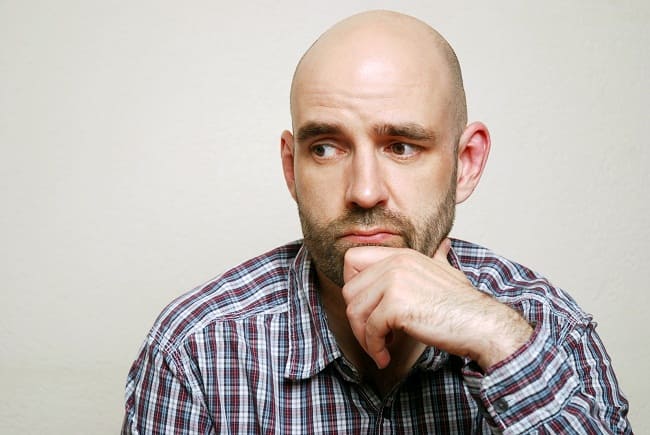
Are You A Good Candidate For Hair Transplant Surgery?
August 24, 2015
Hair Transplant Post-Operative Care
August 26, 2015Baldness Causes and Treatments

Best treatment for baldness differs from woman to woman. The suitability of treatment depends on the cause of baldness, and this is why knowing the hair loss cause is an essential step in treating baldness. Men lose hair mostly due to the balding genes they carry, but there are several other triggers as well ranging from hormonal fluctuations to nutritional deficiencies to stress and anxiety. Listed below are the most important baldness causes and treatment.
-
Your Good Genes
Probably the most common cause of baldness is heredity; it runs in families. There is a common misconception that genetic hair loss is confined to men only. According to an estimate, 70% of men and 50% of women suffer from genetic hair loss at some stage in their lives. While men start showing baldness symptoms at quite a young age, as early as in their late teens, genetic hair loss affects women mostly in their 50s and 60s. However, some women also suffer from hair thinning, and in rare case some extent of baldness as well, as young as in their 20s.
Treatment:
Making sure that your hair loss is due to genes will enable your doctor to focus on the right treatment. If you are experiencing male pattern baldness or female pattern baldness, you will lose hair from the top (the crown area) with the hairline intact. In this case, you will have sufficient hair on the sides and back of your head. These healthy hairs can be used for a hair transplant – a surgical hair restoration technique that extracts healthy hair from donor areas and plant them to the affected areas.
But if you are experiencing overall thinning of hair throughout your head, a hair transplant will not be a feasible option right away. Your doctor may prescribe you medication and hair growth stimulants. When your hair will become healthy again, a hair transplant may be performed to cover bald patches.
-
Hormonal Fluctuations
Hormonal fluctuations are mostly associated with women alone. But men also undergo hormonal changes, especially when reaching the age of puberty. These hormonal fluctuations can accelerate or trigger hair loss. There are certain tests available to know the presence of hormones. Your doctor can recommend tests to check the level of different hormones in your body.
Treatment:
When the hormonal causes have been determined, your physician will prescribe medications to stabilize your hormone levels and the hair loss problem will be automatically fixed. Treating hormonal causes will give you the healthy hair back. If you have developed bald patches as well during the course of treatment, a hair transplant surgery may be the right choice to regrow hair in those areas, but only after the treatment for hormonal fluctuations is successfully complete.
-
Stress and Anxiety
Stress and anxiety are among the top triggers of hair loss. If you have suffered some emotional or physical trauma over the last few months, there is a high probability that you may suffer from temporary hair loss as well. Stress and anxiety causes more than normal hair follicles to undergo resting phase, and this ultimately triggers hair loss.
Treatment:
The positive thing about such a hair loss is that it is mostly temporary. As soon as an individual overcomes his or her stress, hair loss automatically stops and hairs start to regrow. However, it is still recommended to see some doctor to be sure that your hair loss is really due to stress factor. He will also prescribe you some supplements to recover from the hair loss quickly. If left untreated, this temporary hair loss can become permanent and you may have to undergo a hair transplant surgery to regain the lost hair.
-
Nutritional Deficiency
Occasionally, hair loss is caused by nutritional deficiency as well. Your body needs various essential nutrients to maintain the health of your hair, such as protein, iron, multivitamins, biotin, omega 3 fatty acids, zinc and selenium. If your diet lacks any of the above mentioned essential nutrients, this will affect the health of your hair, and sever deficiency may trigger hair loss as well.
Treatment:
In this case, treatment of hair loss in women involves taking good diet and supplements. Women often show significant improvement by taking proper nutrition. However, if some bald patches remain, a hair transplant can be useful to cover them.
-
Cosmetic Products, Traction, and Injury
Continuous use of cosmetic products, hair styling tools, traction and injury can also cause thinning and loss of hair. If harmful cosmetics or styling procedures is the underlying cause, you can simply stop and your hair loss by discontinuing the use of these products.
Treatment:
Your doctor may prescribe some medication or hair care products as well to restore the health of your hair. If you have lost your hair due to traction or injury, they may not come back with medication. In this case, you have to undergo hair transplantation to restore lost hair.
Bottom Line:
Understanding and treating hair loss is the key to prevent baldness. While this article will help you understand the underlying causes of hair loss, it is not an alternate to doctor’s expert advice. Visit some reputed Trichologist in the city and let him or her examine your hair health and determine the exact cause of hair loss in your case.
The good news is that there are numerous surgical and non-surgical options to help you restore lost hair and confidence. If you are determined to regain your hair, you and your doctor will certainly find an appropriate solution.

